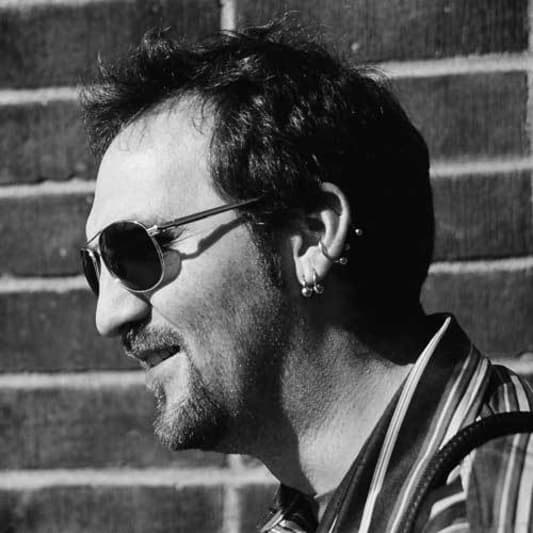
Originally from the Pacific Northwest, Drue spent many years honing the craft of rocking dancefloors up and down the west coast. Now in Los Angeles, Drue continues to work on a variety of projects invoving DJing, remixing, education,and music production. He currently works as a software and mixing engineer and a music production consultant.
Send me a note through the contact button above.
Interview with Drue
Q: Tell us about a project you worked on you are especially proud of and why. What was your role?
A: I'm especially proud of the work I did mixing and engineering a Doc Martin remix of Florian Mendel on his Coast 2 Coast EP on Hell Yeah Recordings. It was a tricky mix for a pair of legendary artists and it was pressed on Vinyl. I found it by chance at Amoeba Records in Hollywood, and was so surprised I bought a copy right there.
Q: What's your typical work process?
A: It depends on the job. I like to assess the needs of my client, and jump in where they need the most help.
Q: Tell us about your studio setup.
A: I've worked in both large and small studios, currently I'm developing a small studio in west LA, However I do have access to larger spaces.
Q: What other musicians or music production professionals inspire you?
A: I'm draw inspiration from musicians and artists all over. Doc Martin, Chuck Love, Ian Pooley, Tom Middleton, Deadmau5, Gary Numan, Hapkido, Giom, Trent Reznor, DJ Dan, Dave Pensado, to name just a few.
Q: Describe the most common type of work you do for your clients.
A: Audio Mixing and mastering, as well as consultation to help artists solve problems and polish their sound.
Q: What are you working on at the moment?
A: a 10 track album of house music.
Q: Is there anyone on SoundBetter you know and would recommend to your clients?
A: not yet.
Q: Analog or digital and why?
A: A better question would be "What's the right tool for the job?" both have their merits.
Q: What's your 'promise' to your clients?
A: I don't like making promises, often because there are too many things that can go wrong. I guess my best promise to my clients would be: "If I can't improve your sound, I won't take the job."
Q: What do you like most about your job?
A: Helping people. I really like helping people make their art better.
Q: What questions do customers most commonly ask you? What's your answer?
A: The most common question I get is "Can you make it sound louder?" and my answer is: "Yes, are you willing to make it sound better instead?"
Q: What's the biggest misconception about what you do?
A: One major misconception is that all I do is slap a bunch of processing on a track that anyone can do. Usually I'm solving problems in a project that an artist or producer didn't know they had and fixing it in ways that they can't explain.
Q: What questions do you ask prospective clients?
A: Is your project done? often times artist's and producers aren't sure if their product is ready. if it isn't, then we'll get it ready.
Q: What advice do you have for a customer looking to hire a provider like you?
A: Have an end goal and reference of what you think success on this project would look like.
Q: If you were on a desert island and could take just 5 pieces of gear, what would they be?
A: A moog synth, they just work very very well, An SSL Channel Strip, and a roland 808.
Q: What was your career path? How long have you been doing this?
A: I've been doing this for about 5 years now. and I'm interested in developing a larger client base.
Q: How would you describe your style?
A: Underground House and Tech-house. However when I'm mixing and mastering, I try to go for a transparent quality, so that the artists I work with and their artistic vision is not altered.
Q: Which artist would you like to work with and why?
A: I'd really enjoy working with Chuck Love, because I really enjoy his creative side. I'd also really like working with my former mentor, Steve Duda, because of his amazing technical ability.
Q: Can you share one music production tip?
A: It helps to limit your options within a creative space. Don't judge your work as you are making it, let someone else do that.
Q: What type of music do you usually work on?
A: I usually work on dance music, specifically house music, however I'm open to working with any artist.
Q: What's your strongest skill?
A: Constructive feedback and creative support.
Q: What do you bring to a song?
A: Unbiased feedback and a strong philosophy of creativity and effectiveness.
- Mixing EngineerAverage price - $200 per song
- Mastering EngineerAverage price - $70 per song
- RemixingAverage price - $300 per song
- ProducerAverage price - $400 per song
- EditingAverage price - $50 per track
- Session DJAverage price - $70 per song



